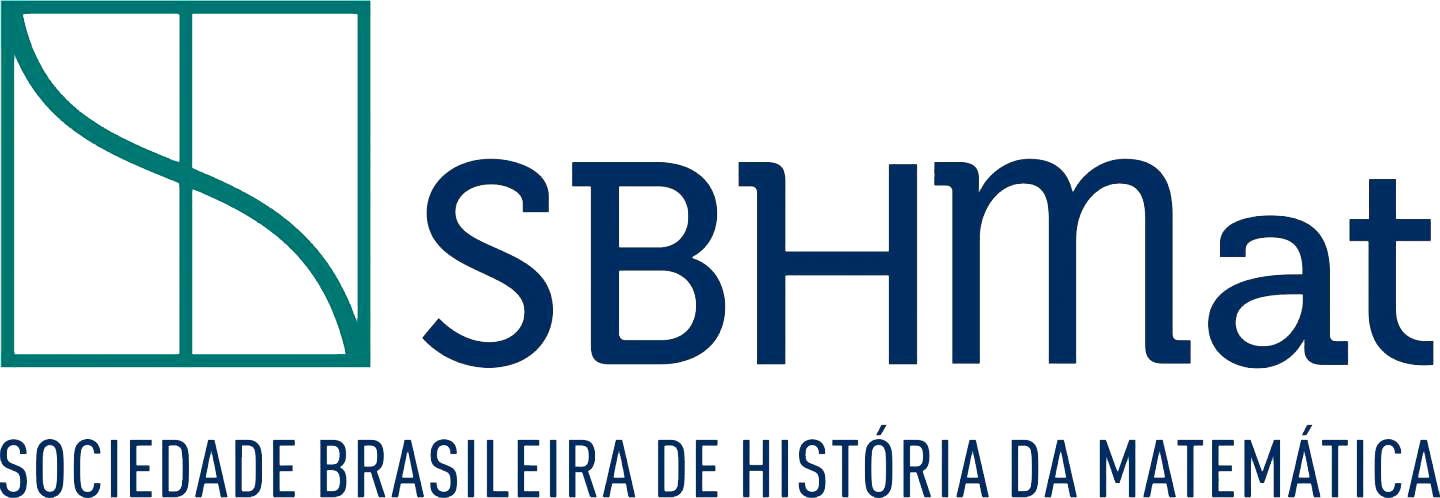Recursão-Neurociência e História da Matemática
DOI:
10.47976/RBHM2023v23n4742-54Palabras clave:
Recursão, história da matemática, neurociência, PirahãResumen
O presente trabalho visa investigar tanto as origens históricas como os processos neurofisiológicos mediante os quais o cérebro humano processa a recursão, tanto linguística como matemática. Igualmente será estudada a possibilidades de povos ´não disporem da recursão, bem como quais seriam os mínimos conceitos matemáticos necessários para a sobrevivência das espécies. Especial atenção será dada ao estudo das particularidades do povo Pirahã.
Descargas
Métricas
Citas
ALEOTTI, Sara; MASSACCESI, Stefano; PRIFTIS, Konstantinos. Numbers around Descartes: A preregistered study on the three-dimensional SNARC effect. In: Cognition · November 2019.
ALMEIDA, Manoel de Campos. Pré-história da Matemática & Educação Matemática - Seus Vínculos e Importância Pedagógica. In: anais X EDUCERE, 2011.
ALMEIDA, Manoel de Campos. JUSTINO, Edson José Rodrigues. Como o Cérebro Processa a Matemática ? - Ensinamentos da Neurociência para uma Pedagogia Renovada. Ed.: Manoel de C. Almeida, 2020. Disponível em: https://www.researchgate.net/publication/343587412_Como_o_Cerebro_Processa_a_Matematica_Ensinamentos_da_Neurociencia_para_uma_Pedagogia_Renovada_How_Does_the_Brain_Process_Mathematics_Teachings_of_Neuroscience_for_a_Renewed_Pedagogy
ALMEIDA, Manoel de Campos. O Nascimento da Matemática – A neurofisiologia e a pré-história da Matemática. São Paulo: Livraria da Física Editora, 2013.
A Matemática na Idade da Pedra. São Paulo: Livraria da Física, 2017b.
A Neurociência e a História das Frações. In: Revista Brasileira de História da Matemática, 2020.
A Neurociência e a Introdução da Medida na Geometria. In: Anais do XIV Seminário Nacional de História da Matemática – XIV SNHM, Uberaba, MG, 2021.
CASPARI, Rachel; LEE, Sang-Hee. Older age becomes common late in human evolution. In: PNAS: July 27, 2004, vol. 101, no 30, 10895-10900. Disponível em www.pnas.org/doi/10.1073/0402857101. Consulta em 07/2012.
CASPARI, Rachel; LEE, Sang-Hee. Is Human Longevity a Consequence of Cultural Change or Modern Biology? In: American Journal of Physical Anthropology, 129-512-517, 2006.
D’AMBROSIO, Ubiratan. Etnomatemática. São Paulo: Ática, 1993.
D’AMBROSIO, Ubiratan; ALMEIDA, Manoel de Campos. Ethnomathematics and the Emergence of mathematics. In: The Nature and Development of Mathematics. New York and London, Routledge, 2017.
EVERETT Daniel L. Cultural Constraints on Grammar and Cognition in Pirahã Another Look at the Design Features of Human Language. In: Current nthropology, Vol. 46, No. 4 (August/October 2005), pp. 621-646. The University of Chicago Press
FRIEDERICI, Angela D.; BAHLMANN, Jörg; FRIEDRICH, Roland; Makuuchi, Michiru. The Neural Basis of Recursion and Complex Syntactic Hierarchy. June 2011. In: Biolinguistics 5.1–2: 087–104, 2011.
FITCH, Tecumseh W. 2010. Three meanings of recursion: Key distinctions for bio-linguistics. In Richard K. Larson, Viviane Déprez & Hiroko Yamakido (eds.), The Evolution of Human Language: Biolinguistic Perspectives, 73–90. Cambridge: Cambridge University Press
GENTNER, Timothy Q.; FENN, Kimberly M.; MARGOLIASH, Daniel. NUSBAUM, Howard C. Recursive syntactic pattern learning by songbirds. In: Nature 440,1204–1207. 2006.
HAUSER, Marc D.; CHOMSKY, Noam; FITCH, W. Tecumseh. 2002. The faculty of language: What is it, who has it, and how did it evolve? In: Science 298, 1569–1579.
TECUMSEH, Fitch; HAUSER, W. & Marc D.. 2004. Computational constraints on syntactic processing in a nonhuman primate. In: Science 303, 377–380.
WYNN, T. ; COOLIDGE, F. L.; The expert Neandertal mind. In: Journal of Human Evolution, 46, 467-487. (2004).
WYNN, T. ; COOLIDGE, F. L. THE EVOLUTION OF WORKING MEMORY. In: Presses Universitaires de France: L’Année psychologique; 2020/2 Vol. 120 | pg; 103 – 134.
Descargas
Publicado
Métricas
Visualizações do artigo: 375 PDF (Português (Brasil)) downloads: 255




































